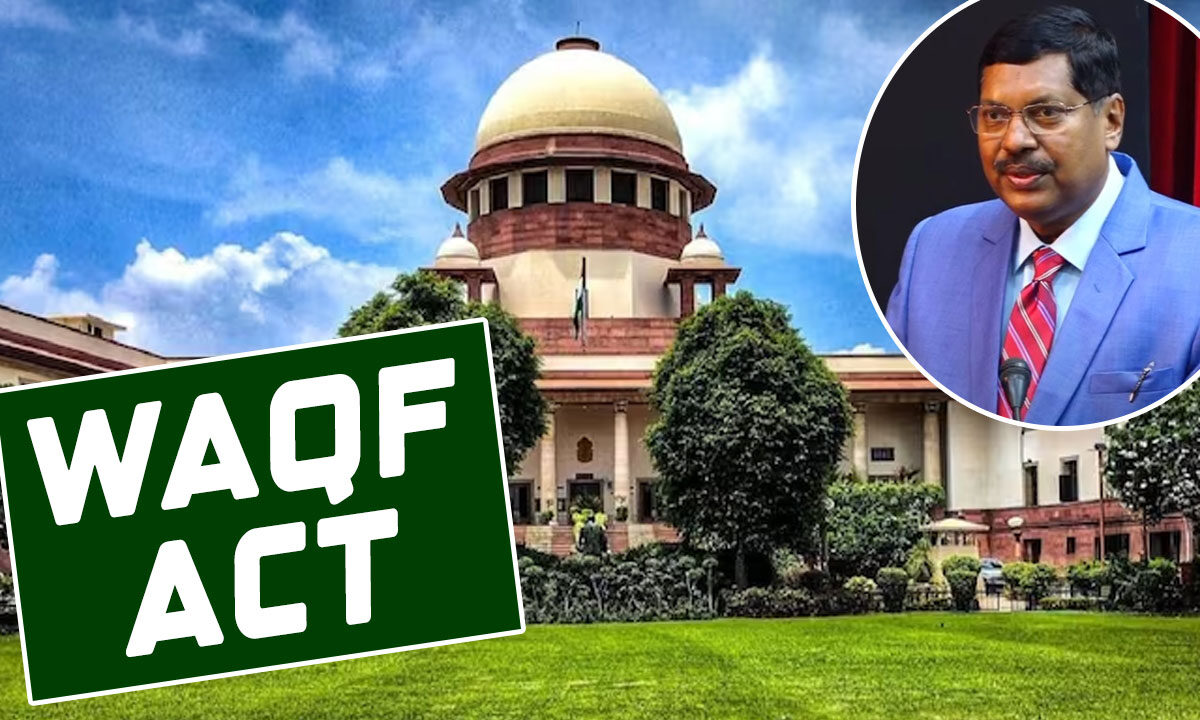CJI Gavai’s Key Observation on Waqf Petitions: ‘Unless It’s a Strong Case, Courts Won’t Intervene’
Appearing for the petitioners, senior advocate Kapil Sibal argued that the new law is an attempt by the government to seize waqf properties under the guise of reform.

The Supreme Court on Wednesday took up a series of petitions challenging the recently notified Waqf (Amendment) Act, 2025. Appearing for the petitioners, senior advocate Kapil Sibal argued that the new law is an attempt by the government to seize waqf properties under the guise of reform.
Table of Contents
CJI Gavai Cautions Petitioners on Constitutional Grounds
Chief Justice of India B R Gavai, heading the bench along with Justice Augustine George Masih, responded by saying that courts usually do not interfere with laws passed by Parliament unless a strong constitutional case is made. “It is about constitutionality… Courts don’t usually interfere… The presumption is with regard to constitution of the statute,” CJI Gavai noted. He also referred to the ongoing disputes around waqf properties in Aurangabad.
‘I’ve Visited Churches, Dargahs…’: CJI Counters Sibal’s Argument
During the proceedings, CJI Gavai remarked, “I’ve visited churches, dargahs…” in response to Sibal’s concerns, indicating a broader understanding of religious sensitivities and cultural heritage.
Hearing to Continue on Specific Interim Issues
The top court has scheduled further hearings to decide on three specific interim issues:
- Denotification of properties already declared as waqf by courts
- Legitimacy of “waqf by user”
- Validity of “waqf by deed”
However, the bench clarified that it would not entertain any requests for a stay on the provisions of the 1995 Waqf Act during the May 20 hearing.
Centre Opposes Interim Stay, Defends New Law
Earlier, the Centre opposed the Supreme Court’s proposal to pass an interim order against the denotification of waqf properties and objected to staying provisions allowing non-Muslims in the central waqf councils and boards.
Centre Files 1,332-Page Affidavit Justifying Amendments
On April 25, the Union Ministry of Minority Affairs submitted a 1,332-page affidavit defending the Waqf (Amendment) Act, 2025. The government emphasized that the law carries a “presumption of constitutionality” and urged the court to refrain from issuing a blanket stay.
Legislative Path and Political Divide on the Act
The Waqf (Amendment) Act, 2025 received presidential assent on April 5 and was formally notified soon after. It passed the Lok Sabha with 288 votes in favour and 232 against. In the Rajya Sabha, 128 members supported the bill while 95 opposed it—highlighting a clear political divide over the legislation.
